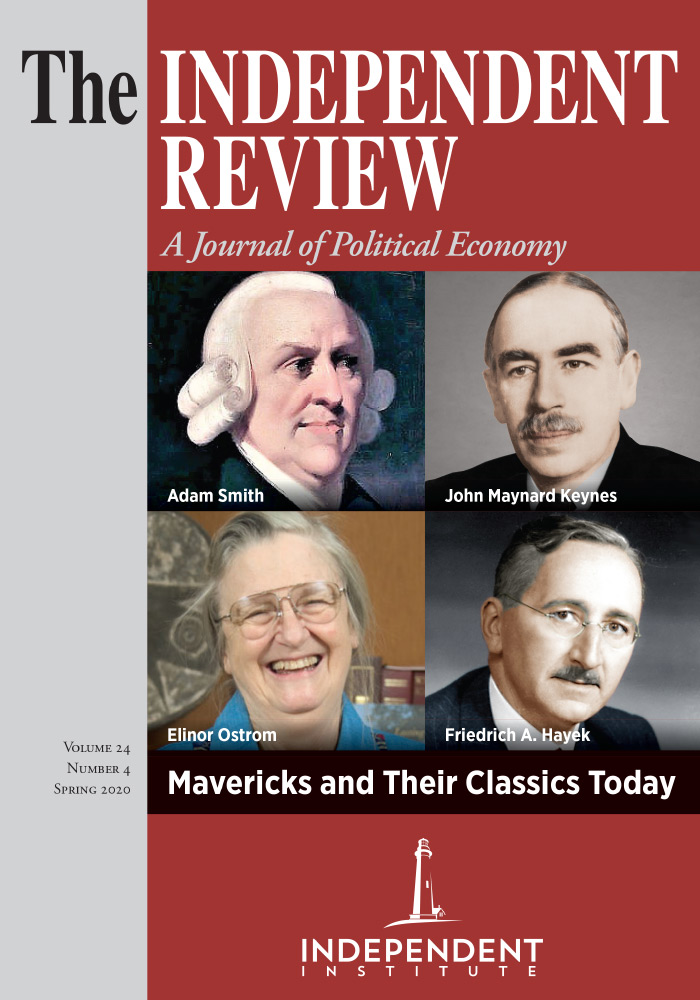Readers bought enough copies of John Kenneth Galbraith’s The Affluent Society (1958) to make it a bestseller, but they didn’t buy its claim that America had become so rich that people would derive no extra utility from consuming more goods and services. Although subsequent research suggests that continued economic growth and rising consumption do bring us smaller and smaller gains in well-being, Galbraith’s argument that government should control any “surplus balance” is paper thin.
Robert M. Whaples is a Senior Fellow at the Independent Institute and Co-Editor of The Independent Review.
| Other Independent Review articles by Robert M. Whaples | ||
| Summer 2024 | The Journey of Humanity: The Origins of Wealth and Inequality | |
| Summer 2024 | Of Boys and Men: Why the Modern Male Is Struggling, Why It Matters, and What to Do About It | |
| Summer 2024 | These United States: Our Nation’s Geography, History and People | |
| [View All (99)] | ||










